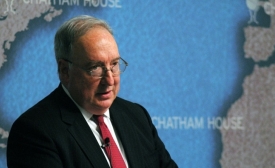media
Bruce Lui, senior journalism lecturer at Hong Kong's Baptist University, said Phoenix operates with the full blessing of the Chinese government and represents the face of Beijing's "soft power." [...] "The traditional state media format is getting a little tired, so China is encouraging certain private-sector entrepreneurs to preach its message in more attractive packaging," he said.
How a Saudi comedian is promoting the country to YouTube audiences even as he criticizes it.
When discussing soft power, it is important to understand that, just like hard power, it is an attribute of force and as such, maintains a coercive, compulsory nature. Bidirectional influence is a purely methodological, not substantive quality, which creates the illusion that many are involved in the decision-making process, but the sole main beneficiary is still the state that is projecting its power.
The Australian government’s Public Diplomacy Strategy points to the importance of “diaspora diplomacy”. It promises to take steps to “engage diaspora communities drawing on their linguistic skills, social networks and cultural community connections”, by making active use of “online and social media as public diplomacy tools”.
Tensions are again mounting between Russia and Ukraine. Dubiously claiming provocation, Russia has stationed 40,000 troops on the Ukrainian border. Russian President Vladimir Putin has warned of a full-scale invasion.[...] What do Russians think of their government’s aggressive foreign policy? Is there anything our government could do to influence the Russian public’s perspective?
In Russia, opinion polls are as important as, or possibly more so than, in democracies. [...] These opinion polls, in turn, reflect the information bubble created by the Russian government. For example, a survey conducted by the Russian Public Opinion Centerin 2014 found 80 percent of Russians supported Russia going to war to ensure that Crimea became part of Russia instead of Ukraine."
Globalisation may not be as old as the hills but it may be as old as Newgrange. Wholesale cultural exchange has been going on for millennia. Peter Frankopan’s new book, The Silk Roads, makes this point as it reframes our history in the context of dynamic interchange between East and West.

A new book on the future of diplomacy, courses on news media and the Middle East, and more.







